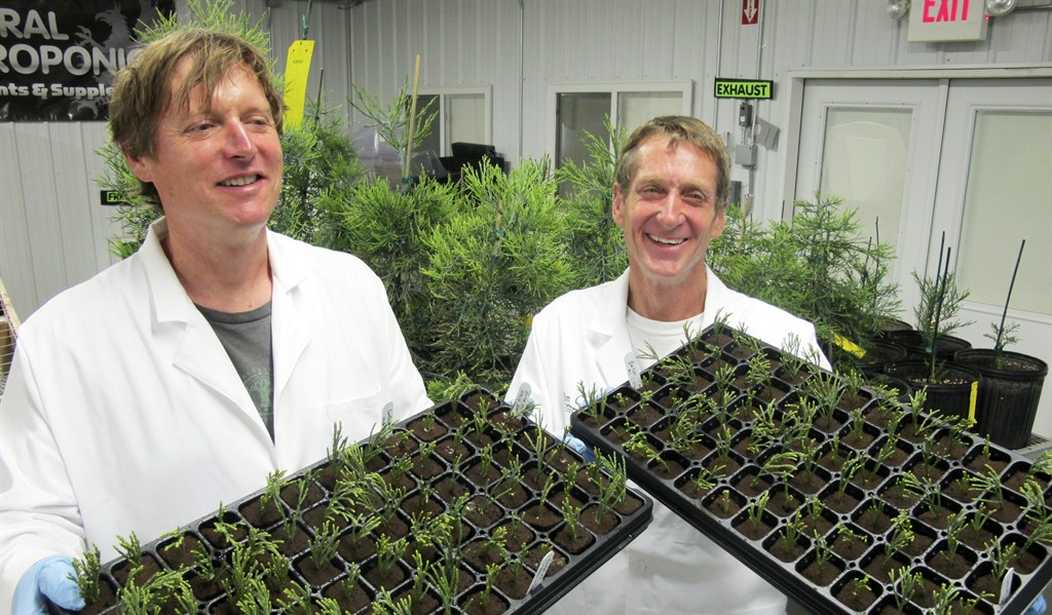Top News
Californians are Suing to Stop the Planting of Trees

At first glance, it may sound as if this is just more of the typical governmental madness we’re used to seeing in California, and there may still be some elements of that at play. But it’s a serious topic that’s being debated on the West Coast and they’ll want to be careful how they handle it. The issue involves the spate of wildfires that have been ripping through the state over the past several years and the staggering damage they have done to the forests of giant sequoia trees that are only found in California. The National Park Service wants to give the forests a leg up in recovering now that the rainy seasons have returned by planting saplings. That makes sense, right? But not everyone agrees, and a collection of environmental groups, some specifically formed to protect the forests, are suing the Park Service to stop the planting plan. As crazy as it probably sounds, they may have a point. (LA Times)
Intense wildfires ripping through the Sierra Nevada have destroyed thousands of giant sequoias in recent years. The trees, which grow only in California, are a towering symbol of the majestic Golden State and its many natural wonders.
National Park Service officials want to help the forests recover and regrow by planting seedlings. ”Natural regeneration may not be sufficient to support self-sustaining groves into the future, particularly as the fires killed an unprecedented number of reproductive sequoia trees in the groves themselves,” the agency said in a news release.
But a contingent of environmental groups is suing NPS over its plan. The John Muir Project, Wilderness Watch, Sequoia ForestKeeper and the Tule River Conservancy argue it’s unnecessary, likely to do more harm than good and borne out of a misunderstanding of the forest’s natural ability to regenerate after fire.
There are scientists on both sides of this debate and they are each trying to make different points. The environmental groups claim that the NPS doesn’t really understand the regenerative nature of the sequoia groves and that planting the seedlings is unnecessary and may “do more harm than good.”
The NPS argues that the extent and duration of the wildfires coupled with the prolonged drought created levels of damage and deforestation that are unprecedented. Planting new trees may be the only way to bring the forests back to sustainable levels, hopefully before the next round of droughts begins. So who is pushing the better argument here?
I’ve been covering this topic for a while now and the argument being made by the plaintiffs isn’t entirely as crazy as it sounds. There was a lengthy period of time when scientists were puzzled as to why there were so few new sequoias sprouting up in the California forests. The trees live to be ancient under the right conditions and they produce plenty of pine cones, but few new saplings emerged. It was only later that they learned that the sequoias had evolved a unique defense mechanism to protect themselves after fires.
The pine cones of the sequoia tree are basically “sealed shut” with sap. If they fall to the ground during pleasant weather, they don’t tend to open up and release seeds. But when a forest fire consumes them, they burst open after the fire passes and distribute new seeds. So for a long time, by fighting the wildfires and saving the trees, California had actually been retarding their ability to produce new generations of trees. (Some of the trees are as old as the Roman Empire.)
That covers the argument saying that planting the seedlings is probably “unnecessary.” But the Park Service also has a point in denying that such a planting effort might “do more harm than good.” The end goal is to regrow the forest. And the number of trees is the lowest they’ve ever seen. Whether the new saplings arise naturally in the areas struck by fire or they are planted by people, does it really matter? Also, water levels are still nowhere near where they were before the latest droughts. The trees probably can use a leg up.
I’ll probably always lean toward the side of planting more trees. The areas that were burned will likely be producing new trees on their own. But other places saw many trees simply die from the drought. Their cones probably didn’t release many new seeds, so perhaps a big infusion of saplings while the “atmospheric rivers” are still delivering plenty of rain might be in order. Best of luck to them, either way. Losing those trees forever would be an absolute disaster.
Read the full article here


















